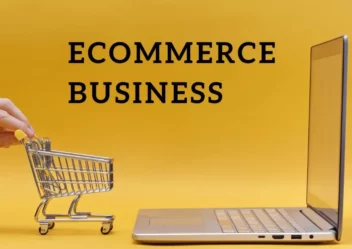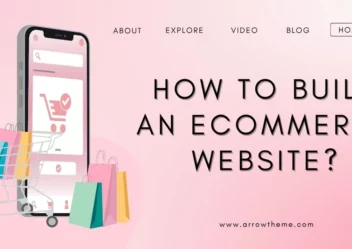10+ Best Alternatives To Facebook Marketplace
Are you looking for an alternative to Facebook marketplace?
Facebook Marketplace has made buying and selling online easier, but it’s not perfect for everyone. Maybe you’re looking for a bigger audience, more specialized items, or just a change of scenery. The good news is, that there are tons of other online marketplaces out there, each with its unique features and advantages.
In this blog, we’ll dive into the best alternatives to Facebook Marketplace, exploring everything from popular generalist platforms to niche marketplaces tailored to specific interests. So whether you’re a seasoned seller or just starting, you’ll find the perfect place to connect with buyers and make some extra cash.
Stick around to find your new favorite online marketplace!
Lusion – Multipurpose eCommerce Shopify Theme
We provide an amazing Shopify theme with fast and responsive designs. Let’s find out!
What is Facebook Marketplace?
Facebook Marketplace is a platform within Facebook where users can buy and sell goods and services. It’s convenient for sellers due to its ease of use and no listing fees.
Buyers and sellers can communicate directly through Facebook Messenger, and QR codes can be used to direct users to relevant pages. The Marketplace offers items both locally and nationally, with a wide range of products available.
It’s important to note that Facebook Marketplace differs from Facebook Shop, which is designed for businesses to sell directly through their Facebook pages.
Why We Search For An Alternative to Facebook Marketplace
Despite its popularity, sellers are increasingly turning away from Facebook Marketplace due to several issues:
- Cluttered interface: Product listings get lost among other social content, hindering visibility and making it difficult for serious buyers to find them.
- Lack of management tools: Sellers must handle payments, shipping, and returns manually, as the platform doesn’t offer integrated tools for these tasks.
- Low conversion rates: Many Facebook users browse casually, leading to a lot of interest but few actual sales.
- Limited promotion options: It’s difficult to make your listings stand out without paying for ads.
- Hidden costs: While the listing is free, effective advertising can be expensive due to imprecise targeting options.
These factors drive sellers to seek alternative platforms with a better focus on commerce, streamlined interfaces, and enhanced selling tools.
The Best Sites Like Facebook Marketplace
Etsy
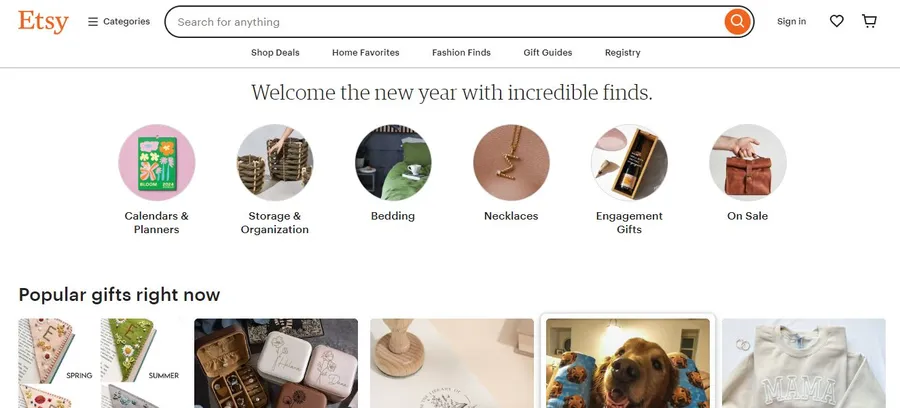
Etsy is an online marketplace specializing in handmade, vintage, and unique items. It attracts shoppers seeking personalized gifts, one-of-a-kind home decor, and items with a story. While it differs from apps like Facebook Marketplace, which primarily focus on local used goods, Etsy offers a curated selection of artisanal and handcrafted products.
Pros:
- Unique audience: Etsy buyers value craftsmanship and are willing to pay a premium for unique items.
- Global reach: Etsy allows sellers to reach an international audience with ease.
- Custom orders: The platform makes it easy to create and sell custom, made-to-order items.
Cons:
- Fee structure: Etsy has multiple fees, including listing fees, transaction fees, and payment processing fees. These can add up, especially for low-priced items.
- Intense competition: Etsy is a popular platform with many sellers, so it can be difficult to stand out, especially in popular categories.
eBay
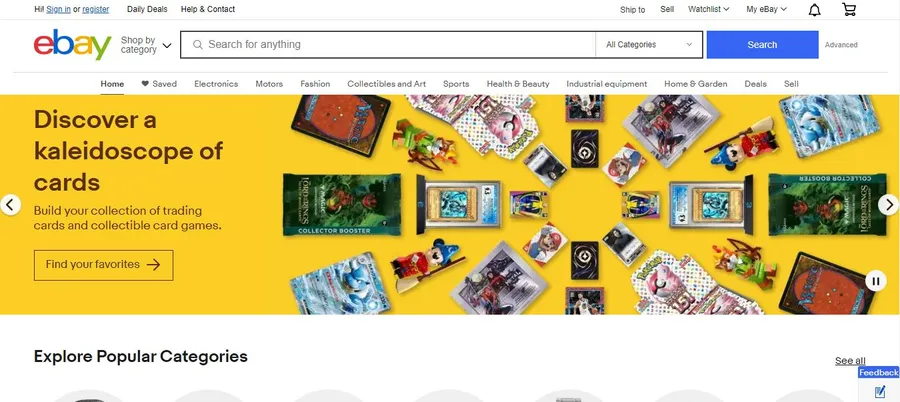
eBay is a long-standing eCommerce platform with a vast marketplace offering diverse products through auction-style and buy-it-now formats. Its comprehensive categories cater to diverse demographics, from collectors to everyday shoppers. It is one of the top sites like Facebook Marketplace and even better.
Pros:
- Dynamic Pricing: The auction format can lead to higher selling prices due to competition among buyers.
- Seller Protections: eBay has implemented systems to prevent fraud and protect sellers.
- Vast Audience: Its global reach provides access to a large and varied customer base.
Cons:
- Complex Fee Structure: eBay has a multi-layered fee system that can be difficult for new sellers to understand.
- Listing Overwhelm: The sheer number of listings makes it challenging for individual sellers to stand out.
Craigslist
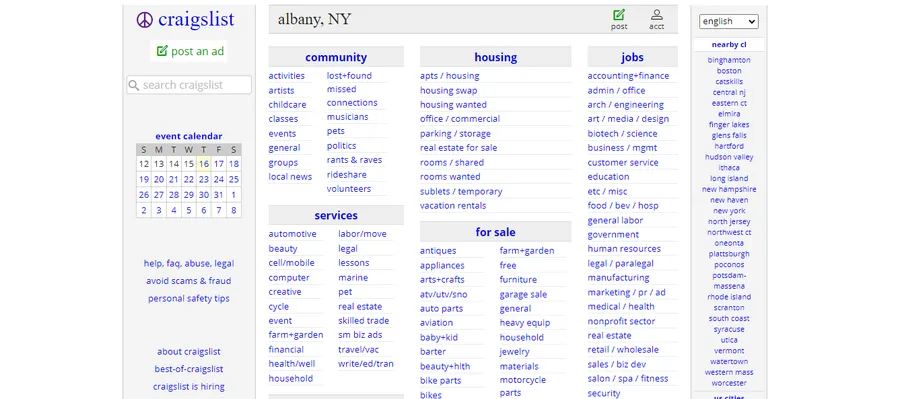
Craigslist is another alternative to Facebook marketplace, known for its simplicity and wide range of listings. It focuses exclusively on local sales, making it an ideal choice for those who prefer in-person transactions.
Pros:
- Wide Variety of Listings: Offers a diverse range of categories, from electronics to furniture, vehicles, and services.
- Local Focus: Facilitates connections with local buyers and sellers, making in-person meetings and transactions convenient.
- Potential for Deals: Many sellers offer competitive prices, allowing buyers to find bargains.
Cons:
- Limited Features: Lacks additional features like auctions or online stores found on other platforms.
- Simple Interface: May not be as visually appealing or user-friendly as newer platforms.
- Requires Caution: Users need to exercise caution and thoroughly inspect items before finalizing transactions.
Mercari
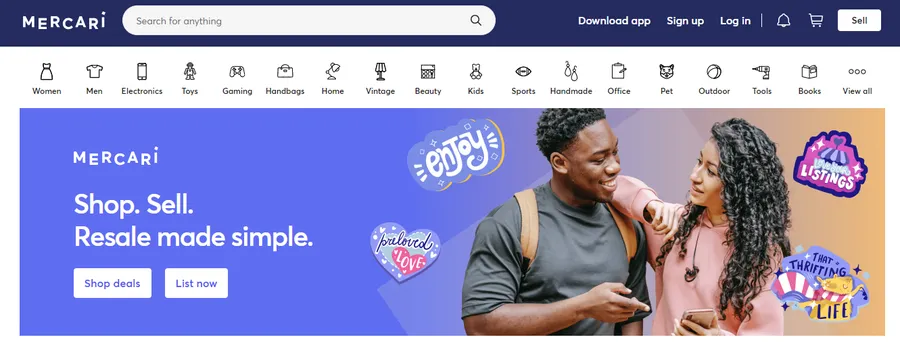
Launched in 2013, Japan-based Mercari is a popular mobile marketplace app designed to simplify the buying and selling of new and used items. It boasts a wide range of categories, including collectibles, antiques, tech, and apparel, catering to diverse interests and needs.
Pros:
- User-friendly: Mercari’s intuitive interface makes it easy for both buyers and sellers to navigate and use.
- Transparent fees: The platform charges a 2.9% + $0.50 fee per sale, ensuring upfront knowledge of costs.
- Listing diversity: Sellers can list a wide variety of items, offering flexibility and attracting various buyers.
Cons:
- Competition: The wide range of listings can make it difficult for sellers to stand out and attract attention.
- High return rate: Some sellers experience a high rate of returns, which can be frustrating and time-consuming to deal with.
Decluttr
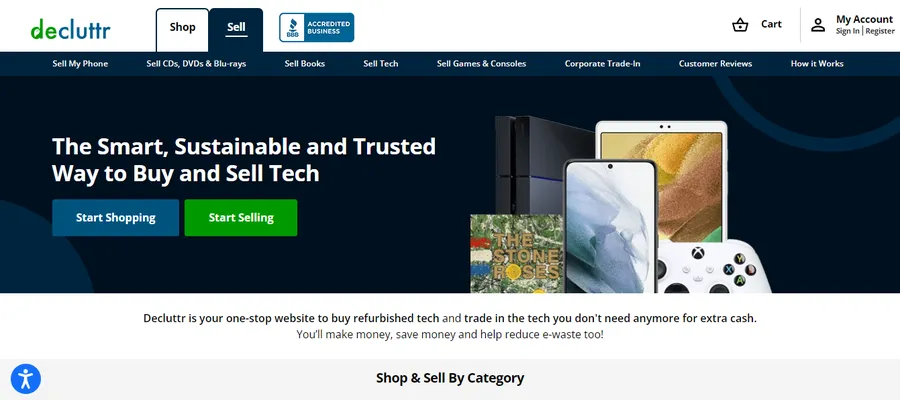
Decluttr is an online marketplace specializing in the sale of used items. It provides a user-friendly platform for individuals to declutter their homes while offering great deals to buyers seeking pre-owned goods.
Pros:
- Dedicated Platform: Specializes in used goods, catering specifically to buyers and sellers in this niche.
- User-Friendly: Offers an intuitive interface for easy navigation and transactions.
- Secure Transactions: Provides protection against fraudulent activities for both buyers and sellers.
- Convenient Shipping: Offers prepaid shipping labels for hassle-free transactions.
- Trustworthy Sellers: Vets sellers to maintain a high level of trust within the marketplace.
Cons:
- Limited Scope: Focuses solely on used items, may not be suitable for those seeking brand-new products.
- Competition: Faces competition from other online marketplaces like Facebook Marketplace, OfferUp, and Craigslist.
- Pricing: Prices may not always be significantly lower than other platforms selling used goods.
OfferUp
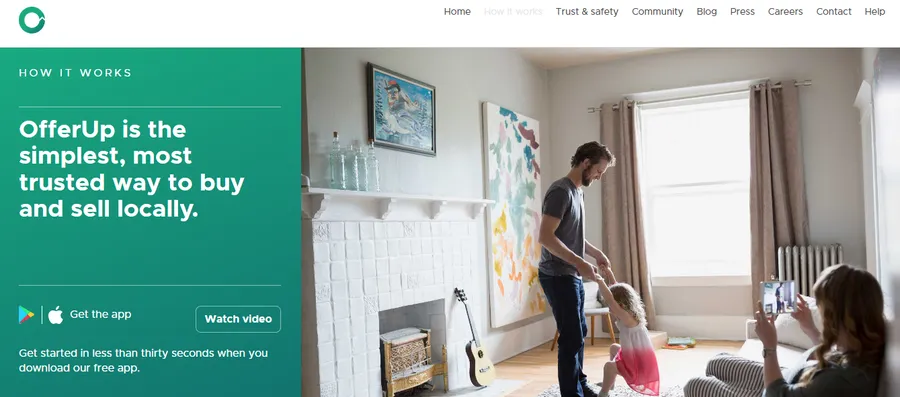
OfferUp is a mobile-first local marketplace. It’s designed for selling used items like furniture, electronics, clothes, and more. It has a strong emphasis on in-person meetups for transactions, although it does offer shipping options.
Pros:
- Local Focus: Excellent for finding buyers and sellers in your area.
- Ease of Use: Simple interface and quick listing process.
- No Listing Fees: Free to post items (unless you want to promote them).
- Variety: Wide range of item categories.
- Built-In Chat: Convenient communication with potential buyers.
Cons:
- Safety: Requires caution with in-person meetups (always choose public places).
- Less Reach: Not as widely used as some other platforms.
- Shipping Limitations: Shipping options are less developed than on dedicated online marketplaces.
Poshmark
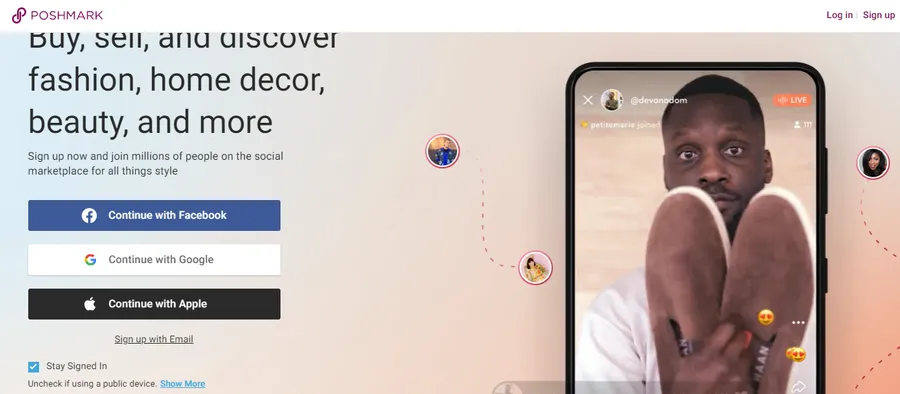
Poshmark is a social marketplace specifically for fashion, accessories, and beauty products. It fosters a community aspect, with users creating profiles, following each other, and participating in virtual “parties” to showcase items.
Pros:
- Fashion Focus: Ideal for selling clothing, shoes, handbags, and jewelry.
- Community: Engaging environment for fashion enthusiasts.
- Easy Listing: Pre-populated categories and brand suggestions.
- Prepaid Shipping Labels: Simplified shipping process.
Cons:
- Limited Categories: Only for fashion and related items.
- High Fees: 20% commission on sales over $15 (flat $2.95 for sales under $15).
- Less Negotiation: Prices are more fixed compared to other platforms.
Amazon
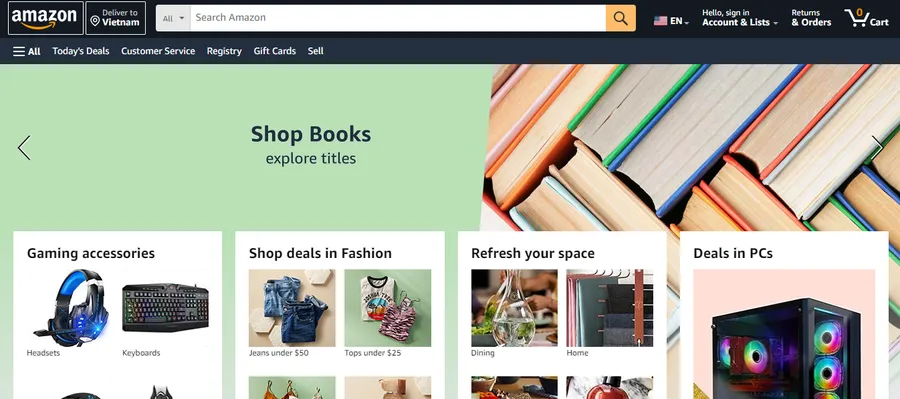
Amazon is the world’s largest online marketplace, offering an enormous variety of products. You can sell both new and used items on Amazon, reaching a massive audience.
Pros:
- Massive Audience: Potential to reach millions of buyers worldwide.
- Trusted Platform: Established reputation for buyer protection.
- Fulfillment Options: You can choose to handle shipping yourself or use Amazon’s FBA (Fulfilled by Amazon) service.
- Various Seller Tools: Access to analytics, advertising, and other features to help you succeed.
Cons:
- Competition: High level of competition from other sellers.
- Fees: Fees can be complex and vary depending on your selling plan and product category.
- Less Personal Touch: Less opportunity for direct interaction with buyers compared to local marketplaces.
- Listing Complexity: Can be more time-consuming to list items due to Amazon’s extensive requirements.
The Power of Multi-Channel Selling
Multi-channel selling, or diversifying your sales channels, is becoming increasingly crucial in today’s competitive online marketplace. By expanding your reach across different platforms, you can:
- Increase sales opportunities: Reach wider and more diverse audiences on various platforms.
- Diversify revenue streams: Protect your business from risks associated with relying on a single platform.
- Enhance brand visibility: Gain greater exposure and recognition across multiple channels.
- Reach different audience segments: Tailor your strategy to cater to the specific demographics of each marketplace.
- Gain a competitive advantage: Optimize prices, promotions, and product offerings for each platform.
- Gain customer insights: Gather a more holistic view of customer preferences and buying habits.
- Potentially achieve higher profit margins: Command different prices on different platforms, potentially boosting overall profitability.
Final Thoughts: Finding Your Perfect Alternative To Facebook Marketplace
As we’ve seen, the best alternative to Facebook Marketplace depends entirely on your goals and selling style. Do you crave a curated audience? Need robust seller tools? Want to go hyper-local? The options are abundant.
Take advantage of the diversity out there. Experiment with different platforms, harness the power of multi-channel selling, and discover how much further your reach can extend. Your next big sale might be just a click away.
Read More: 10+ Best Online Website Marketplaces


